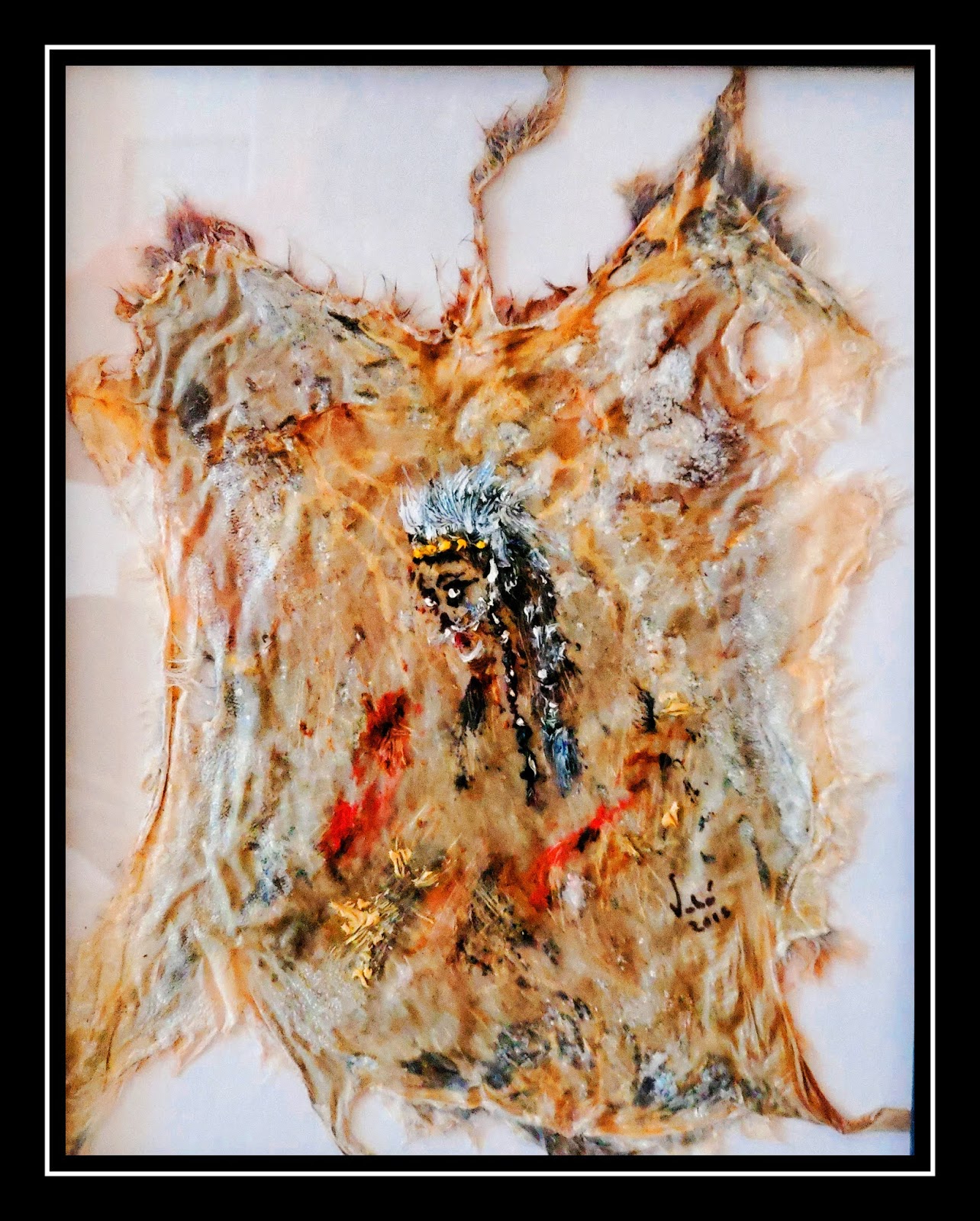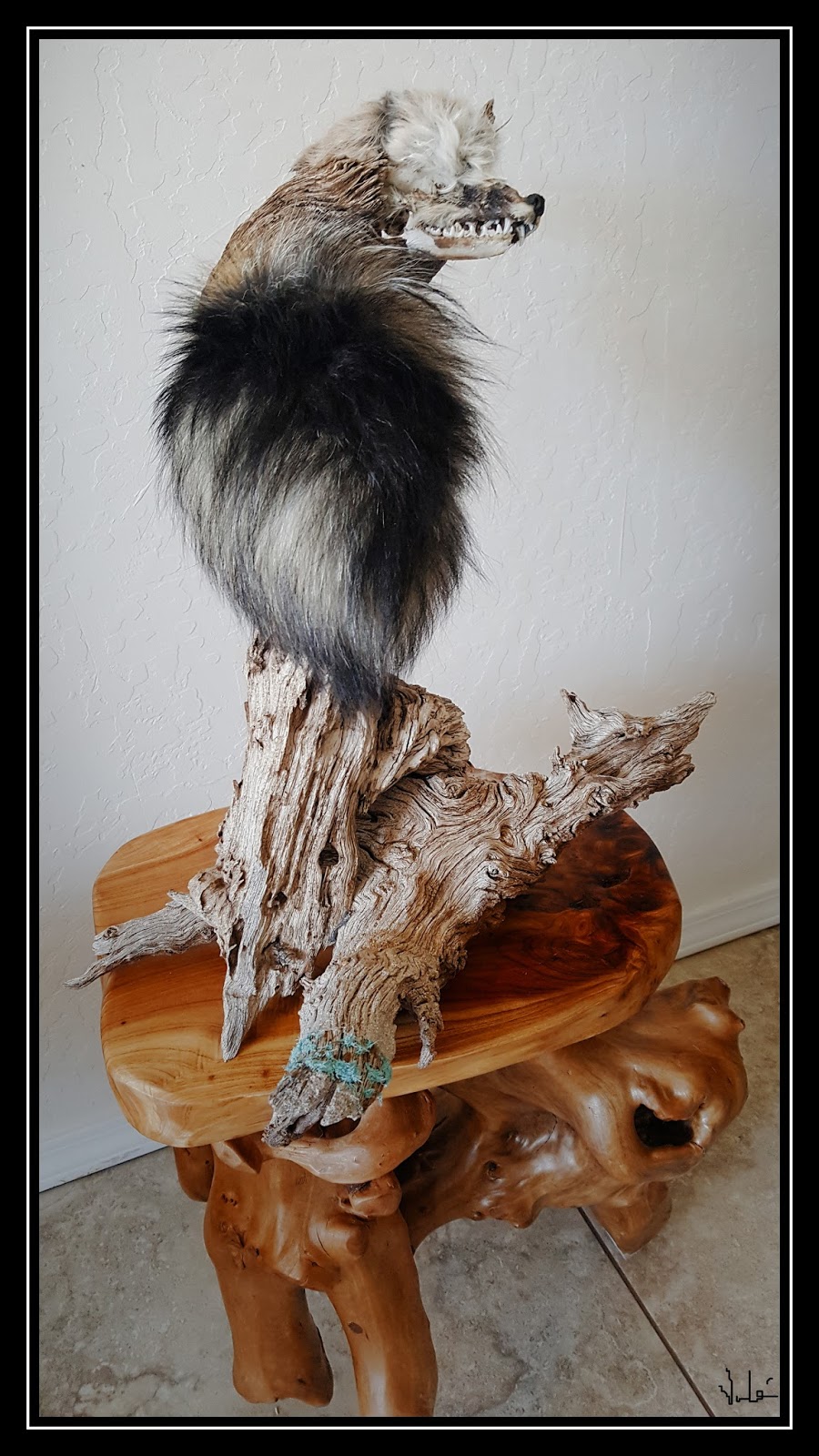The Bobcat in Native American Mythology
I posted this entry about the influence of the Bobcat in Native
American stories and mythology in 2013. Since then it has been widely read by
visitors of my blog from around the world. I received many comments and
suggestions about things I might have missed in my description.
So, here is an update on how my painting was inspired by
what I have learned about the Bobcat, the stealth cat I have seen in the
American Southwest but never for too long before it disappeared in the desert
brush or the dirt path of an urban setting.
… I was reading about Native American myths regarding the
power of various animals and their interaction with human behavior and destiny.
He raven, the coyote, the rabbit, the hawk and the lynx have their prominent places
in all the stories and myths one finds racconted by various Native American
tribes and Nations. These animals, mostly of the Southwest and Northwest, have
anthropomorphic and also highly spiritual characters. They can be tricky, they
can metamorphose into shapes and concepts, they can be loyal, and they can untrustworthy.
During my inquiry I discovered an animal I knew very little
about – the bobcat. This crepuscular cat resembles the Lynx but I think is much
more attractive both in appearance and in character. Indeed, while the bobcat
is often depicted as a selfish, disdainer of rules and a renegade as the Hopi
tribe describes it, others like the Zunis, believed that the bobcat has hunting
secrets and prowess. Perhaps my favorite myth about the bobcat is Pawnee
mothers’ approach – they wrapped their babies in bobcat fur so that celestial
blessings may be bestowed upon the babies.
No matter what, like all cats perhaps, if a bobcat crosses
your way, it is believed to be bad luck!
One of my first hare skin sculptures/painting was that of a
bobcat. In fact the preserved skin had already the appearance of a cat – I just
used the holes for eyes, painted what became its back, and use hare scapula en
guise of ears. Here is that work:
And here us the detail:
While the hunting and survival skills of the bobcat are expected
to be found in stories sometimes elevated to myth, but this spotted cat seems
to go beyond the deserts of South and North Americas and hold spiritual and
celestial powers. Indeed, in 1980 burial grounds along the Illinois River
contained the full skeleton of a bobcat adorned with a necklace and fetishes. It
seems that the Hopewell culture had buried the cat along with humans in belief of
celestial blessings.
So, I was ready to paint, always with my painting knife on
hare hide, a bobcat encompassing the anthropomorphic attributes described
above. It had to have a human posture, perhaps be in a mood like a Native
American Medicine Man or Spirit Talker reaching beyond what we know, and still
have that cat like attitude of disdain to the rules and traditional thinking.
The photo on top shows that painting I did in 2013. Since I
use a palate knife, the application of oil paint on the hare hide is irregular
and often coarse. I was attracted to this kind of painting, called impasto after I saw the exhibit of
Lucien Freud in Madrid more than a decade ago. Here is a close-up for the
painting style and detail:
So, the bobcat is more mysterious than the lynx in the
mythology that surrounds it in the Native American cultures as well as in South
America. Perhaps it being smaller than a coyote, a lynx or a cougar (mountain
lion) makes his prowess even more formidable.
And this brings me to my last update:
Two days ago, just after sunrise, I saw two bobcat kittens
in my backyard. I had just come back from my morning walk with my dog, and he
was now happy taking a nap. If not, the kittens would have had a tough time
with him.
Contrary to the elusive bobcats I have seen before, these
young ones were not as cautious as their mama would have wanted. So I was able
to take a couple of pictures with my phone. I think their play is just
adorable, although I am sure later on mama scolded them saying “You never pose
for a man with a beard!!”
Here they are:
July 28, 2020
© Vahé A. Kazandjian, 2020








Comments
Post a Comment